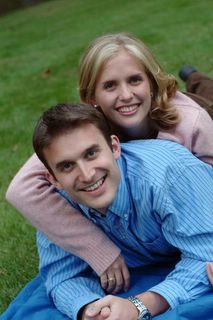specialization and diversity: mega vs. 'mergent
In our church we try not to specialize. At least, we try not to specialize like the mega-church model. We have multiple people speak on various Sunday mornings, not just "paid staff." We have many people play instruments and lead small groups. Set up and tear down every Sunday is done by multiple people. We don't really have "specialized" teams for this or that.
The reason for this lack of specialization is because we don't have the core value of "excellence." That's not to say we don't want to do everything we do the best that we can. But that is more like having the value of "do the best you can with what you've got." Our Sunday mornings aren’t perfectly smooth and our link groups are often a mess. That is because we value "multiplication." We are trying to lose our jobs and turn them over to other, often less experienced, people so that we can grow. Organic growth happens through multiplication. The mega-church has people who are "professionals" at every station who know exactly what to do. They are specialized in their functioning within the community. Our church is trying to develop "generalists": people with a wide array of experiences and a core ability to love and lead people well.
So we could say that the emergent community doesn't specialize like the mega-church. But it seems that we specialize on a communal level. Whereas in the mega-church there is a preaching pastor, lead pastor, mission pastor, youth pastor, pastor to the pastors, security pastor, cleaning pastor, counseling pastor and the like, we don't specify that kind of individual specialization within our community. But our community itself is a, sort of, “specialized community.” Emergent churches are becoming more and more "relevant" to their local areas. Our expression of the local church reflects niches of subcultures within our larger culture. We are less "national" and more "tribal" if you will.
So maybe the mega-church has the advantage here in terms of diversity. While they specialize individually in their roles within the community, they draw in a wide array of people. Their large community of 5000 or more people are diversified. Diversity is something the emergent church desires. And yet we are designed in a way, specifically as small church plants, not to be "diverse." In a sense, our paradigm is working against itself. We are creating space for a more inclusive community and yet our close, missional, pseudo-Celtic, communities are bound to be more homogeneous by nature.
While emergent churches may draw in some diversity in terms of different kinds of middle-class white folks from differing Christian traditions, we are largely monochromatic. But even if the black community as a whole were to find themselves in the midst of the emergent conversation, they too would probably establish homogeneous communities. Part of being emergent means being relevant to the culture. If you are black, then your first thoughts are probably toward your own sub-culture. Your church would attract people like yourself, those to whom you are trying to be relevant.
This is what I mean when I say that the emergent church has “communal specialization” rather than “individual specialization.” While individuals operate practically as generalists within the community, the community itself becomes specialized for a particular pocket of people. Diversity in the mega-church looks like blacks, whites, Asians, and Hispanics all singing and working together in one huge, loosely connected community. Diversity in the 'mergent church might look like middle-class church plants loosely networking with city church plants, Asian church plants, and predominantly black church plants in their general geographical area. I guess the question is whether we are ok with this kind of diversity being what it is to have diversity in the emergent church.

